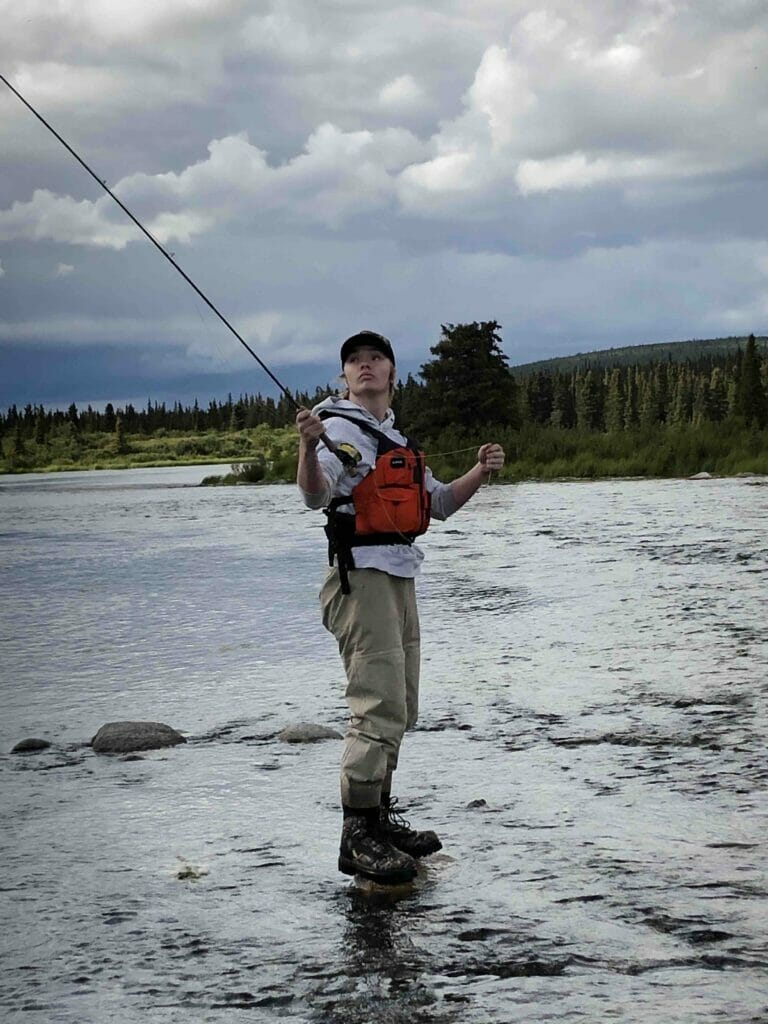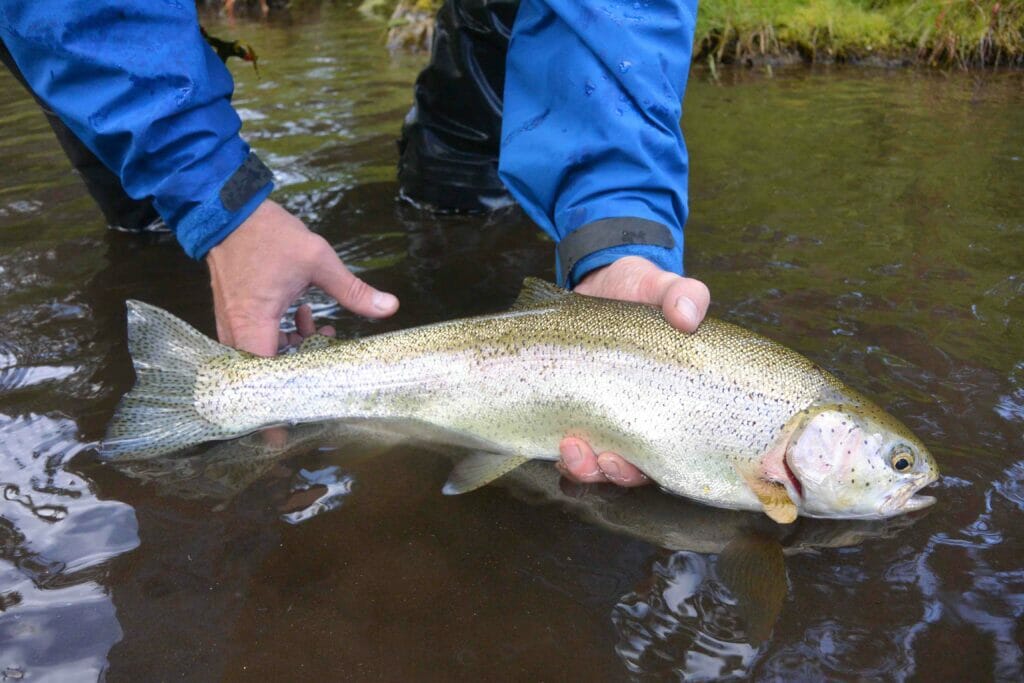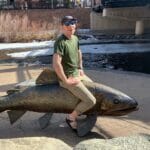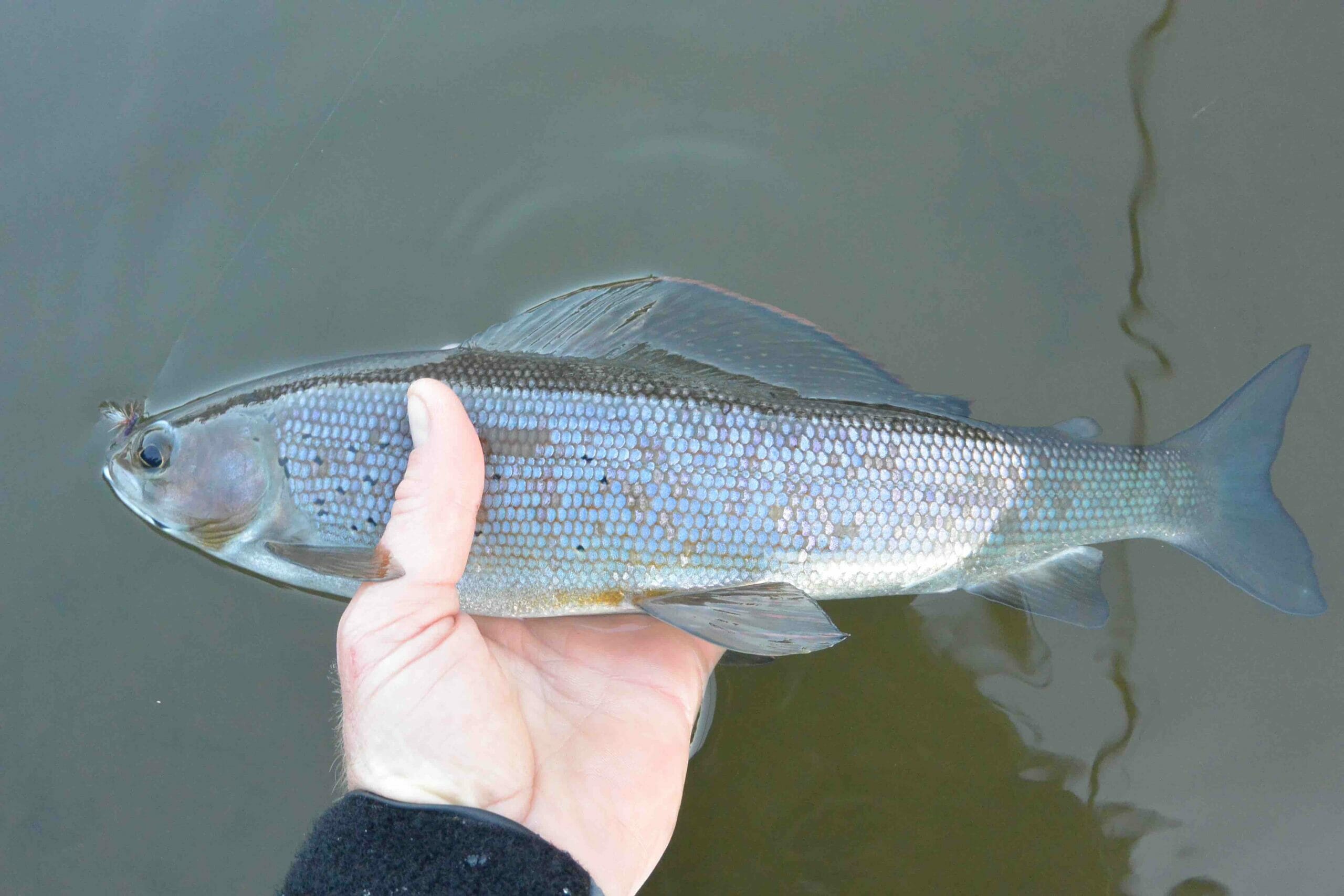It took time, but I finally learned that you cannot wholly recreate a successful trip. My best advice? Don’t even try.
Any attempt to do so immediately sets you up for disappointment and, in all honesty, undercuts the thrill of the trip. Every adventure is bound to be a little different, and wiser heads will nod as I add that this dash of uniqueness is part of the curiosity, and appeal, that reliably draws you back.
The trip started with us pulling into the campground well after midnight. We searched for an open site with as much stealth as a large pickup and trailer piled with rafts can muster. Our annual float was already off on a different foot, and not just with the fresh blood welcomed into the crew. Next to the early morning fire, I curiously questioned what the Gulkana River had in store for us this year, before quickly determining it was simply better to find out.
A stiff headwind and visible white caps welcomed us at the put in on the lake, not a favorable start to a backcountry river float. Fortunately for us, a little sweet talking to a fellow boater at the launch scored us a tow across the lake.
Cheating? Quite possibly, but when seven miles of waves and wind stand between you and the saving grace of flowing water, some principles become more … flexible. We caught the current in record time but I’m not going to brag about it.
The river was high this year, or rather, drastically higher relative to past trips. The extra flow provided easy passage through the first several miles of the upper river, often remembered for its incessant dragging of boats through skinny water and over rocks that make for constant examination around the campfire. Trout anglers hypothesized how their quarry might react in response to the water level, while the rowers, more importantly, questioned how the downstream hazards would impact the ride.
I was taken aback at our first night’s camp on the river, aptly named Princess for its luxury of an outhouse, by the colorful avian life bouncing around the pine trees. An unabashed flock of white-winged crossbills entertained us around the fire and seemingly followed us to the next camp where the vibrant red males and attractive yellow females joined us in close proximity digging up grit and perching on our rafts and gear with little concern. Clearly, my slowly receding hairline is signaling my inevitable metamorphosis into a low-key birder, which would make my late, cue ball-headed grandpa glow. It seems fitting to me.
The Gulkana’s willing grayling
My trip-mate and friend, Rachel, had never fished dry flies, and certainly not to such eager fish as the Gulkana’s Arctic grayling. Her infectious grayling giggles mirrored the steady stream of top-water action so well that none of us had to look to know the story. Her chortle told the tale well enough, peaking at pandemic level as both boats couldn’t help but chuckle along. Rachel’s case of the grayling giggles lingered throughout the trip, likely branding themselves into her personal recollection of the trip as they did mine.

The Gulkana Canyon, sporting two particularly challenging rapids, is rated as class III – IV in the guide book. Its remoteness and potential to ruin the trip, or worse, makes it undoubtedly the climax of the trip. In our numerous discussions leading up to the canyon’s roar, we theorized two likely scenarios for how the high water would affect the run. It would either make for an easier navigation of the tight chute on the picket fence, or it would be a seriously intimidating bastard.
Completing our first portage of gear, we walked to the river’s edge. The rapids we were semi accustomed to seeing were unrecognizable. New ones had appeared and what is typically a clear line through the chaos was vague at best. In the end, we erred on safety and portaged the boats, a little extra labor, but I didn’t hear a single complaint, only sighs of relief as we continued our merry way downstream of the canyon with the knowledge that no more barriers lay ahead. After all, I am a trout angler, not a river rat.
Two-handed fish

The river’s soft babble comforted me all night, a small, but noteworthy joy of every river trip. The promise of camp coffee compelled me to abandon my sleeping bag, but it wasn’t the only delight on my personal morning agenda.
Rolling out of the tent I was just steps from the run. For 365 days this exact slice of water had been on my mind to one extent or another.
When the rafts are on the bank, the two-hander comes out to play — that’s my general rule at least. The cool morning’s fog hung low in the valley, a dramatic setting for botched Snap T casts. My mental race reduced as I relaxed into the remedy that only an equation as simple as “swing, step, breathe, repeat” can facilitate.
I wasn’t surprised to feel the grab at the end of my swing. I shouldn’t have counted on it, but I did. The rainbow jumped. I smiled. For a moment it wasn’t me and my torrent. It was me and my aquatic muse. A fish just for me.
True to the trend of prior float trips, true to the consistency of “the fishing was better yesterday,” and true to the reality of this unpredictable existence as a human on planet earth, Gulkana 2020 was its own significant voyage for the six souls who contracted the grayling giggles.
Nearly three months later I sit with the subtle reminder that even on a casual five-day float through the wilderness you may encounter a puzzling problem, but there’s always a path through, though sometimes it means turning to a stranger for a tow or other times its shouldering a raft beyond a canyon.
Good friends will always be there to help carry the load.
Eric Booton is the hunting and angling outreach coordinator for TU’s Alaska Program.



